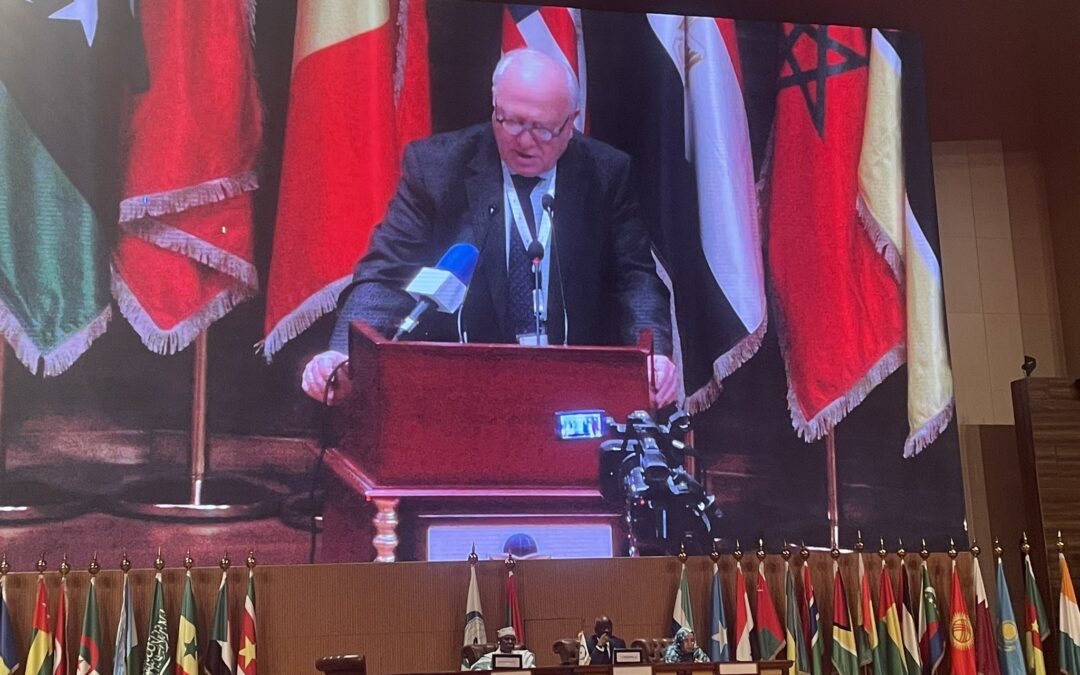Remarks by H.E. Miguel Ángel Moratinos,
The High Representative for UNAOC
At the special session on combating Islamophobia
OIC 49th Session of the Council of Foreign Ministers
Nouakchott, Mauritania | 16 March 2023, Originally published on www.unaoc.org
Your Excellency, Bilawal Bhutto Zardari,
Minister of Foreign Affairs of the Islamic Republic of Pakistan,
Your Excellency, Mr. Hussien Ibrahim Taha,
Secretary-General of the Organization of Islamic Cooperation (OIC),
Your Excellency, Mr. Mohamed Salem Ould Marzouk,
Minister of Foreign Affairs of the Islamic Republic of Mauritania,
Your Excellency, Prince Faisal bin Farhan Al Saud,
Minister of Foreign Affairs of the Kingdom of Saudi Arabia,
Excellencies,
Distinguished guests,
Al Salamu Alikom.
It gives me a great honour to be addressing this special session dedicated to combatting Islamophobia within the 49th session of the OIC Council of Foreign Ministers representing the United Nations Secretary General as well as my own capacity as the High Representative for the United Nations Alliance of Civilizations. The Secretary General conveys his warmest wishes on the occasion of the International Day to Combat Islamophobia and thanks the Organization of Islamic Cooperation for focusing attention – and calling for action – to stamp out the poison of Islamophobia.
Distinguished delegates,
For a long time, Muslims have been subjected to discrimination and stigmatization on account of their religion or belief.
In the aftermath of the 9/11 terrorist attacks, security polices and laws were adopted by state and non-state actors that essentially contributed to the negative perception of Muslims – all Muslims – and Islam.
The prevalent misrepresentation of the adherents of Islam led to fear of Muslims in general.
They were perceived as a threat and a high-risk to the societies where they are a minority.
The truth is that to date, Muslims are still suffering exclusion, bias and distrust at the socio-economic level.
Their fundamental human rights are being compromised; their dignity undermined.
Out of fear, many Muslims had no choice but to conceal their religion and refrain from publicly observing their religious practices and rituals.
It is alarming to see the overall rise in instances of discrimination, intolerance and violence, regardless of the actors, directed against members of many religious and other communities in various parts of the world, including cases motivated by Islamophobia, antisemitism and Christianophobia and prejudices against persons of other religions or beliefs.
The surge in far-right extremist ideologies found ample space on the ever growing social media platforms which facilitated their outreach.
The livestreaming of the Christchurch attacks on 15 March in 2019 is a striking and painful reminder of the role of such on-line platforms.
As I mentioned earlier in my remarks, the sum of policies and laws enacted by states and international security apparatus, contributed to a large extent to the negative perceptions about Muslims as a faith community and about Islam as a faith.
Given the context, the persistent manifestations of hatred, discrimination, stigmatization, social and economic exclusion, violent hostility and fear towards Muslims and Islam serve as a basis to label these patterns as a form of Islamophobia.
Attacks on religious sites, desecration of places of worship and burning holy books is not free expression.
Yet to be clear, addressing Islamophobia does not and should not be conflated with freedom expression which is a fundamental human right.
Equally important is that Islamophobia should not be conflated with criticism of a certain practices or policies that are wrongfully disguising behind the cloak of Islam – such as discriminatory laws or regulations against women or non-Muslims.
Excellencies,
The UN General Assembly Resolution” International Day to Combat Islamophobia” calls for strengthened international efforts to foster a global dialogue on the promotion of a culture of tolerance and peace at all levels, based on respect for human rights and for the diversity of religions and beliefs, and strongly deplores all acts of violence against persons on the basis of their religion or belief and such acts directed against their places of worship, as well as all attacks on and in religious places, sites and shrines that are in violation of international law.
During the high-level event held at the UN General Assembly on 10th March commemorating the day, H.E. the Foreign Minister of Pakistan, Mr. Bilawal Bhutto Zardari proposed to the UN Secretary General the formulation of an Action Plan in coordination with the OIC countries to combat Islamophobia.
I am pleased to note that the Secretary-General has responded positively. He asked me to work closely with OIC for further discussions.
The United Nations works on policies that fully respect human rights and protects cultural and religious identities.
The UN Plan of Action to Safeguard Religious Sites developed by my office provides recommendations to member states for the protection of places of worship and worshipers.
The UN Strategy on Hate Speech provides guidance to support member states in their efforts to counter hate speech on line and off line.
I stand ready with my office to work closely with you to address Islamophobia through advancing intercultural and interreligious dialogue and mobilizing concerted actions towards a paradigm of mutual respect among diverse cultures and religions.
In concluding my remarks, I wish to extend my warmest wishes to you and to all Muslims around the world on the occasion of the Holy month of Ramadan.
I thank you.


